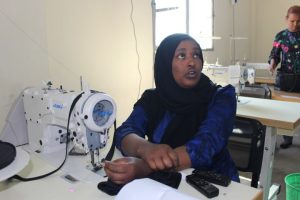
Known for being one of the fastest-growing economies over the past two decades, Ethiopia is now embarking on an inclusive reform process and working aggressively towards realizing its vision of becoming African beacon of prosperity through the implementation of the Ten-year Development Plan (TYDP, 2021-2030).
The nations has achieved significant strides in reducing poverty and hunger, and improving health, education and gender outcomes over the past years. Since the reform process launched in 2018 the government has been exerting its outmost effort in liberalizing the economy of the nation which is long controlled by the government.
Similarly the nation has been challenged by wide range of problems over the past years. For instance , chronic foreign currency shortage, high inflation rate, macroeconomic imbalance and others are among the core problems . Therefore the government launched different initiatives among which liberalizing state owned companies to private sector is at the forefront.
The broader initiative launched by Prime Minister Abiy Ahmed (PhD) to privatize state owned companies is a significant step in stimulating the economy of the nation. On the other hand Ethiopia launched Homegrown Economic Reform (HGER) agenda, supported by the IMF program, to ease pressing problems and take measures such as moving to a market-determined exchange rate, combating inflation, mobilizing domestic revenues, and restoring debt sustainability which are important steps to put the economy of the nation on the right track.
As part of broad economic reform initiated in 2018 Ethiopia has recently introduced a bold macro-economic reform policy aimed at stabilizing its economy, which has been strained by a severe foreign currency shortage, rising inflation, and other challenges. The broader economic reform is part of the nation’s journey towards digital transformation.
Back in 2023 the government established Ethiopian Securities Exchange (ESX) through a pioneering public-private partnership with the Government of Ethiopia through the Ethiopian Investment Holdings (EIH). The establishment ESX is part of Prime Minister Abiy Ahmed’s push to open up the country which is heavily controlled by the state to greater private investment.
The introduction of the ESX is set to play a crucial role in this transformation and established with the primary objectives of educating the wider public on the value of investing in regulated securities. By cultivating a culture of investment and financial literacy, the ESX empowers Ethiopians to participate actively in capital markets.
The nation has implemented several reforms to open the economy to the private sector and the launch of a securities exchange will be a catalyst for attracting new investment from the private sector. The exchange will be a platform for the privatization of Ethiopia’s state-owned enterprises and will help Ethiopian businesses, including small and medium-size enterprises to raise capital.
Recently Ethio-telecom, the country’s largest telecom operator, is to begin selling its shares ahead of listing on the new Ethiopian Stock Exchange. This move is part of the government’s privatization strategy aimed at driving economic growth and transformation. Commenting on the issue ESX Chief Executive Officer, Tilahun Ismael (PhD), hailed the sale as a milestone in the nation’s privatization process, launched by Prime Minister Abiy Ahmed (PhD). “As Ethiopia embraces digital transformation and economic growth, this bold move is crucial for the country’s progress,” he stated.
The government’s “Digital Ethiopia 2025” strategy includes stimulating the economy and privatizing state-owned enterprises. Ethio-telecom will be the first company to sell its shares on the Ethiopian Stock Exchange, setting a precedent for other companies to follow.
BY HAILE DEMEKE
THE ETHIOPIAN HERALD THURSDAY 17 OCTOBER 2024





